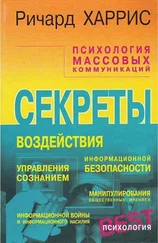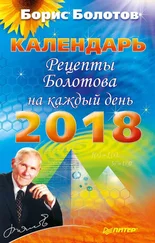Фестингер Л. Теория когнитивного диссонанса. СПб.: Ювента, 1999.
Филонов Л. Б. Психологические аспекты установления контактов между людьми: Методика контакт. взаимодействия. Пущино: НЦБИ АН СССР, 1982.
Филонович С. Р. Лидерство и практические навыки менеджера. М.: ИНФРА-М, 2000.
Фишер Р., Юри У. Путь к согласию, или переговоры без поражения. М.: Наука, 1992.
Фрейд З. Психология масс и анализ человеческого «Я» // Преступная толпа. М.: Ин-т психол. РАН; Изд-во «КСП+», 1998.
Хабермас Ю. Моральное сознание и коммуникативное действие. М.: Наука, 2000.
Хараш А. У. Личность в общении / Общение и оптимизация совместной деятельности. М.: Изд-во МГУ, 1987.
Холл С., Гарднер Л . Теории личности: Учеб. пособие для студентов фак-та психол. по дисциплине «Общая психология». М.: Апрель-Пресс; Эксмо-Пресс, 1999.
Хьелл Л., Зиглер Д. Теории личности. СПб.: Питер, 1997.
Цуканова Е. В. Психологические трудности межличностного общения. Киев: Головное изд-во изд. объед. «Вища школа», 1985.
Чалдини Р. Психология влияния. СПб.: Питер, 2000.
Чернатони Л. От видения бренда к оценке бренда. Стратегический процесс роста и усиления бренда. М.: Группа ИДТ, 2007.
Чудова Н. В. Особенности образа «Я» «жителя Интернета» // Психологический журнал. 2002. Т. 23. № 1.
Шадриков В. Д. Мысль и познание. М.: Логос, 2014.
Шибутани Т. Социальная психология. Ростов н/Д.: Феникс, 1998.
Шленская А. В. Временная организация структуры невербального взаимодействия и диалогичность общения. Дисс… канд. психол. наук. М., 1995.
Шостром Э. Анти-Карнеги, или Человек-манипулятор / предисл. Л. А. Карпенко, А. В. Петровского. М.: Моск. изд. группа, 1992.
Якокка Л. Карьера менеджера. М.: Прогресс, 1990.
Aaker J. L. Dimensions of Brand Personality // Journal of Marketing Research. 1997. Vol. 34.
Al-Khayyat R. M., Elgamal M. A. A Macro Model of Training and Development: Validation // Journal of European Industrial Training. 1997. Vol. 21. No. 3.
Altman I., Taylor D. A. Social Penetration: The Development of Interpersonal Relationship. N.Y.: Holt, Rinehart, and Winston, 1973.
Ammons R. B. Ef ects of knowledge of performance: A survey and tentative theoretical formulation // The Journal of General Psychology. 1956. Vol. 54. No. 2.
Anderson A. K., Pheips E. A . Expression without recognition // Psychological Science. 2002. Vol. 11. No. 2.
Appelbaum S H., Goransson L . Transformational and adaptive learning // The Learning Organization. 1997. Vol. 4. No. 3.
Archer R. L. The role of personality and the social situation // Self-disclosure / G. J. Chelune (ed.). San Francisco: Jossey-Bass, 1979.
Argyle M. Social Interaction. L.: Methuen, 1969.
Argyle M. The nature of social skills // Social Skills and Mental Health / M. Argyle (ed.). N.Y.: Methuen, 1981.
Argyle M., Dean J. Eye-contact, distance and af liation // Sociometry. 1972. Vol. 6. No. 1.
Arkin R. M. Self-presentation styles // Impression Management Theory and Social Psychological Research / J. T. Tedeschi (ed.). N.Y.: Academic Press, 1981.
Arthur W. J. et al. Ef ectiveness of training in organizations: A meta-analysis of design and evaluation features // Journal of Applied Psychology. 2003. Vol. 88.
Back K. W. Beyond words: The Story of Sensitivity Training and the Encounter Movement. N.Y.: Russell Sage Foundation, 1972.
Baker L. L., Fraser C. Facilitator Core Competencies as Defi ned by the International Association of Facilitator // The IAF Handbook of Group Facilitation / S. Schuman (ed.). San Francisco: Jossey-Bass, 2005. P. 459–471.
Baldmin M. The triadic concept in the work of Virginia Satir // Virginia Satir: Foundational Ideas / B. J. Brothers (ed.). N.Y.; L.: Routledge, 1991.
Baldwin T. T., Ford J. K. Transfer of training: A review and directions for future research // Personnel Psychology. 1988. Vol. 41. N o. 1.
Baron B. Geschlossene Gesellschaft. Konstanz, 1996.
Bartlem C. S., Locke E. A. The coch and French study: A critique and reinterpretation // Human Relation. 1981. Vol. 34. No. 7.
Begley S., Carey J. The sexual brain // Newsweek. 1979. November 26.
Benne K. D. History of the play group in the laboratory setting // T-Group theory and laboratory method: Innovation in re-education / L. P. Bradford, J. R. Gibb, K. D. Benne (eds). N.Y.: John Wiley, 1964.
Bennis W. G. Why Leaders Can Lead. San Francisco: Jossey-Bass, 1989.
Bennis W. G., Nanus B . Leaders: The Strategies for Taking Charge. N.Y.: Harper & Row, 1985.
Bens I. Facilitating with Ease! San Francisco: Jossey-Bass, 2005 a .
Bens I. Advanced Facilitating Strategies: Tools & Techniques to Master Dif cult Situations. San Francisco: Jossey-Bass, 2005 b .
Bergenhenegouwen G. J., Horn H.F.K., Mooijman E.A.M. Competence development – a challenge for HRM professionals: Core competences of organizations as guidelines for the development of employees // Journal of European Industrial Training. 1996. Vol. 20. No. 9.
Bernieri F., Rosental R . Interpersonal Coordination. Cambridge University Press, 1991.
Bion W. R. Group dynamics: A re-view // International Journal of Psycho-Analysis. 1952. Vol. XXXIII.
Bland C. Training managers to communicate ef ectively // Industrial and Commercial Training. 1998. Vol. 30. No. 4.
Blume B. D. et al. Tranfer of training: A meta-analytic review // Journal of Management. 2010. Vol. 36. No. 4.
Bowers C. A., Pharmer J. A., Salas E . When member homogeneity is needed in work team: A meta-analysis // Small Group Research. 2000. Vol. 31. No. 3.
Boyatzis R. E. The Competent Manager: A Model for Ef ective Performance. N.Y.: Wiley, 1982.
Bradford L. P. Biography of an institution // Journal of Applied Behavioral Science. 1967. No. 3.
Breakwell G. M. Coping with Threatened Identities. L.; N.Y.: Methuen, 1986.
Brickner M. A., Harkins S. G., Ostrom T. M. Ef ects of personal involvement: Thought-provoking implications for social loafi ng // Journal of Personality and Social Psychology. 1986. Vol. 51. No. 4.
Broad M. L. Beyond transfer of training: Engaging systems to improve performance. San Francisco, CA: John Wiley & Sons, 2005.
Читать дальше
Конец ознакомительного отрывка
Купить книгу












